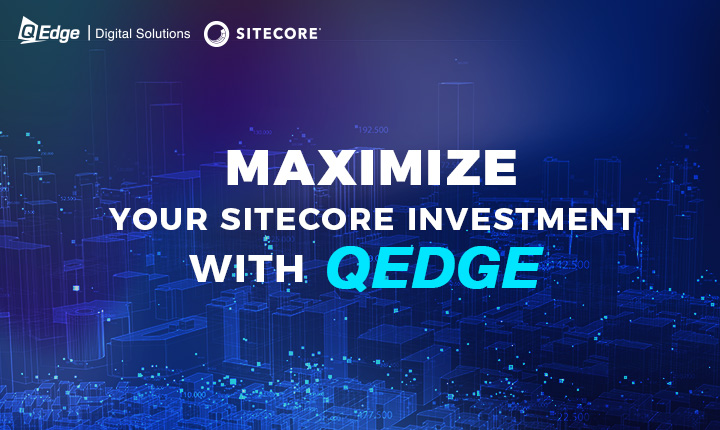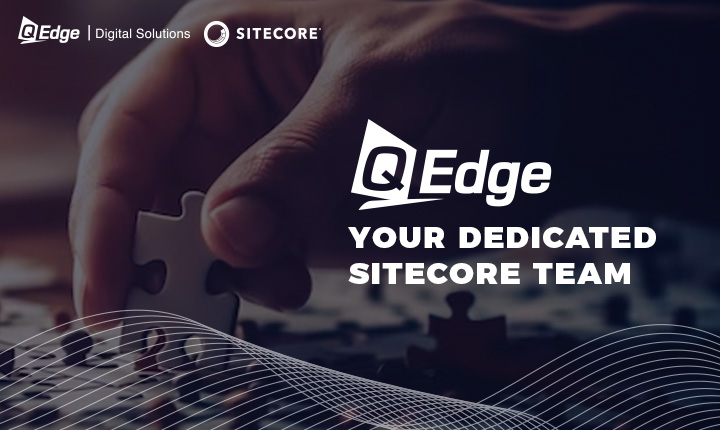Sitecore XP Cloud to Headless SaaS: Will Enterprises Benefit? Sitecore's announcement that they are transitioning their core CMS product XM to a headless SaaS offering demonstrates their dedication to providing flexible and best-in-class digital experiences. But what does this shift entail for enterprises, and how can they take advantage of Sitecore XP Cloud?
How Does Sitecore XM Cloud Accelerate Digital Experiences?
Sitecore's launch of XM Cloud represents their foray into delivering a fully SaaS-based CMS to power seamless digital experiences. But what exactly does this new offering entail and how can it accelerate your DX strategy?
Well, XM Cloud aims to supercharge time-to-market and enable infinite scalability based on changing business requirements. The cloud-native architecture allows marketers and developers to easily build, manage, and deploy content in a fraction of the time - without those painful legacy upgrades or infrastructure maintenance.

Additionally, the promise of constant innovation through new feature additions and improvements means you'll always have access to the latest DX capabilities. The elastic scaling also means you can flexibly adjust capacity to match demands.
Moreover, by integrating natively with other Sitecore products like CDP, Personalize, and Marketing Automation, you gain a full view of the customer and the tools to deliver personalized journeys. The focus on multichannel content management also powers consistency across touchpoints.
However, risks around reliance on Sitecore's infrastructure exist. And there may be data security concerns over assets residing solely in Sitecore's cloud. But for most organizations, the speed, agility, and convenience provided by XM Cloud make it an appealing option to accelerate DX. Just be sure to evaluate thoroughly based on your specific use cases and requirements.
The future is undoubtedly SaaS. With XM Cloud, Sitecore is aiming to be at the forefront in providing cloud-based digital experience platforms that can equip brands to adapt quickly and craft seamless customer journeys.
Read More on QEdge Blog: Headless CMS Vs Traditional CMS | In-Depth Analysis
Sitecore XP Cloud to Headless SaaS: Are enterprises a good fit for Sitecore XM Cloud?
It may not be the best choice for every use case, but Sitecore Experience Manager Cloud is an appealing option for many organizations. In order to understand how Sitecore XM impacts your enterprise's ability to deliver on your business goals, let's examine the following points.
Faster Development and Release
Transitioning to Sitecore XM Cloud can significantly expedite your website development and release cycles. With XM Cloud's managed cloud platform, you avoid the hassle of setting up and maintaining your own Sitecore infrastructure. This liberates your team to focus on rapidly building and iterating your website UI with minimal friction.
However, existing Sitecore XP/XM on-premises users face a tougher decision. Replatforming to XM Cloud would likely require completely reimplementing your website from scratch. This major undertaking may not make sense if your current Sitecore platform is meeting your needs.

Composable Experience
With Sitecore XM Cloud, you gain the flexibility to assemble a customized digital experience from modular cloud-based building blocks. This aligns with Sitecore's broader vision for composable DXP through SaaS solutions like Send, DXP, and now XM Cloud.
The key is XM Cloud's API-first architecture. Sitecore exposes secure, public APIs that allow you to integrate XM Cloud's core content delivery capabilities with other best-of-breed marketing SaaS tools. You can stitch together solutions tailor-made for your needs.
For example, you could build a blazing-fast JavaScript and HTML-based website powered by XM Cloud that connects to a separate email marketing platform like Mailchimp. The possibilities for mixing and matching digital capabilities are endless.
Ease of Adoption
For current Sitecore XP users, transitioning to XM Cloud represents a major shift. You'll need to unravel years of accumulated platform customizations and re-architect your website from the ground up. It's no small feat to rebuild a formerly integrated experience on top of XM Cloud's headless foundation.

On the bright side, developers can leverage their Sitecore expertise while learning new skills like JavaScript and headless CMS integration. But overall, expect a steep learning curve for overhauling an XP-based website.
Internal System Integration
For many enterprises, integrating their website with internal business systems is a top priority. However, XM Cloud may present challenges in this regard versus an on-prem Sitecore deployment.
The traditional approach of tightly coupling your CMS to internal tools like ERP, CRM, and databases is no longer viable. With XM Cloud, you'll need to build an external integration layer outside the platform to connect to these back-end systems.
This requires adopting a composable strategy to unite your content with data sources. You'll need to decide whether to build new JavaScript front-ends or. NET/Java apps to access the internal systems through APIs. Neither option is as straightforward as direct CMS integration.
Additionally, companies with on-prem legacy systems like product catalogs and custom search engines may find it difficult to connect these to a cloud-hosted XM instance.
QEdge enables enterprise-class digital experiences
With Sitecore XM Cloud, Sitecore is adding another product to its suite of enterprise-class solutions. To create a digital experience platform, enterprises can integrate XM Cloud with other Sitecore SaaS offerings and third-party best-of-breed solutions.
The Sitecore suite includes this new feature, but it may not suit all enterprises. A number of enterprise functionalities are unavailable to companies or they may have difficulty integrating them with their internal systems or solutions.
Marketing-focused websites with limited complexity that prioritize speed to market and SEO are the best fit for Sitecore XM Cloud. Businesses with complex logic, particularly those that prioritize logged-in states over SEO, will have limited benefits and limitations. It is expected that the limitations will outweigh the benefits over time.
![[2023]Sitecore: The Key to Next-Level Omnichannel Marketing](https://www.qedge.co/blog/wp-content/uploads/2023/07/20230619-blog-02.jpg)
In addition to assessing and auditing your infrastructure and use cases to determine the best Sitecore solution for your needs, QEdge is a certified Sitecore Partner. Also, it is a good Sitecore partner for development. We offer Sitecore development and implementation services backed by over 50 developers, analysts, and designers.






